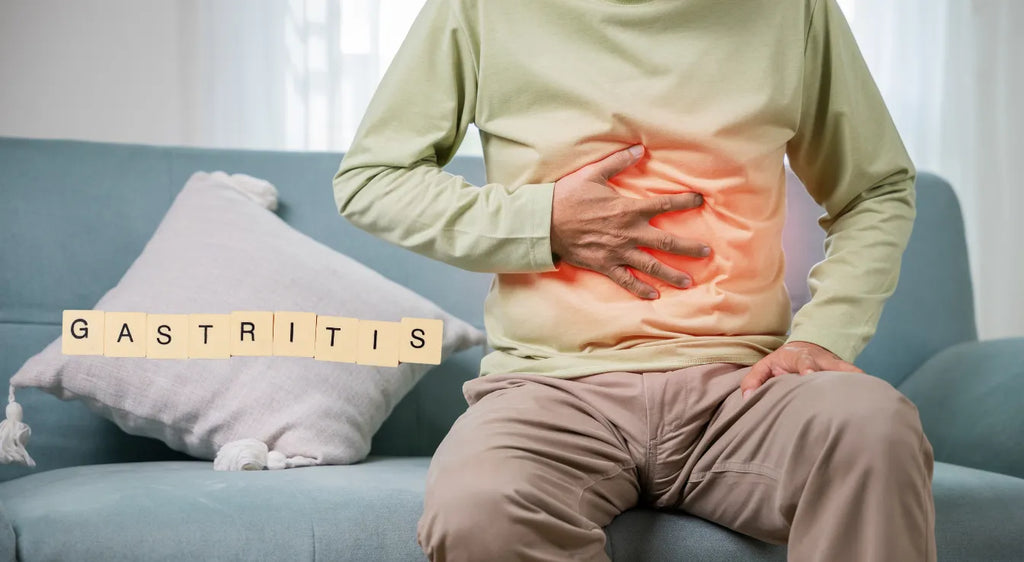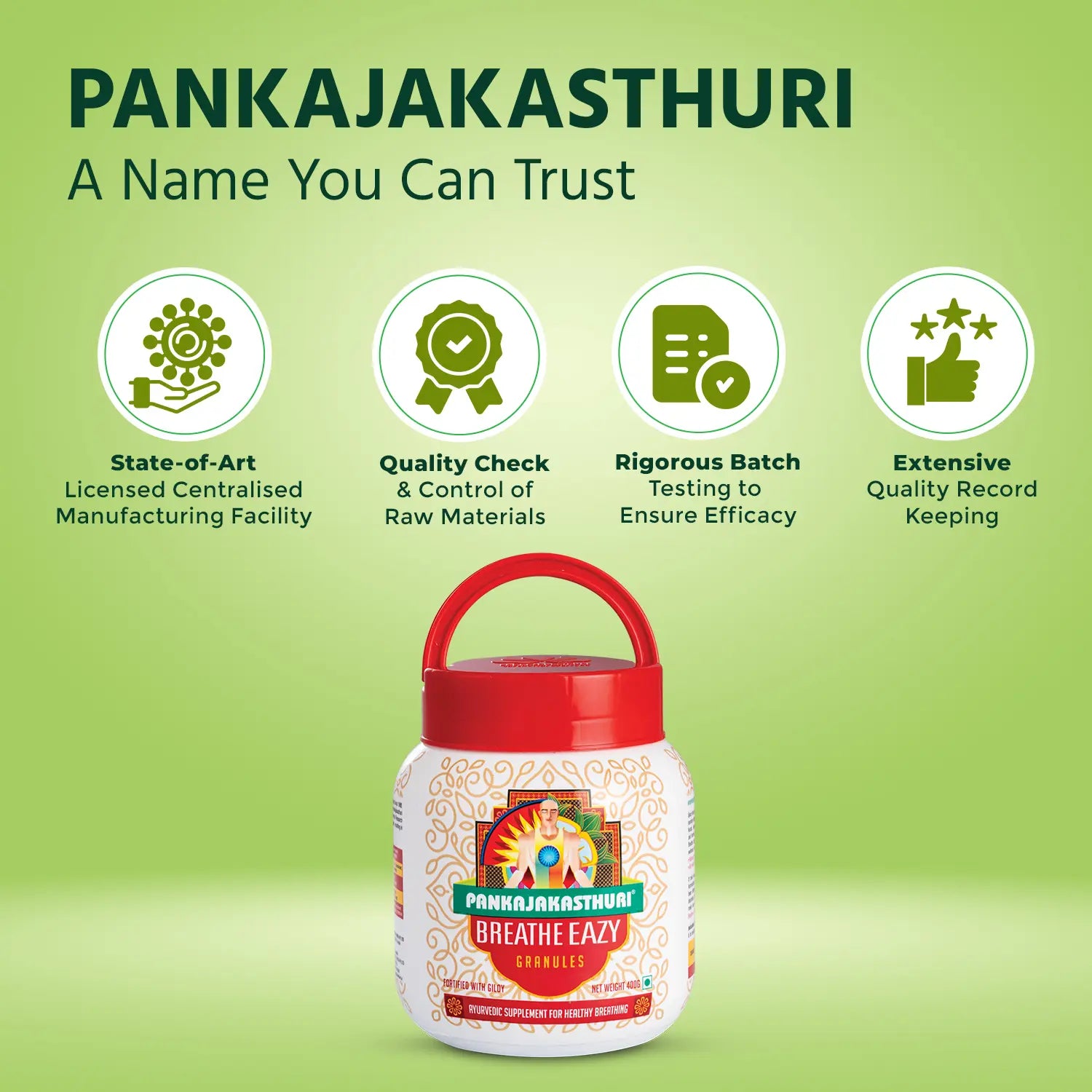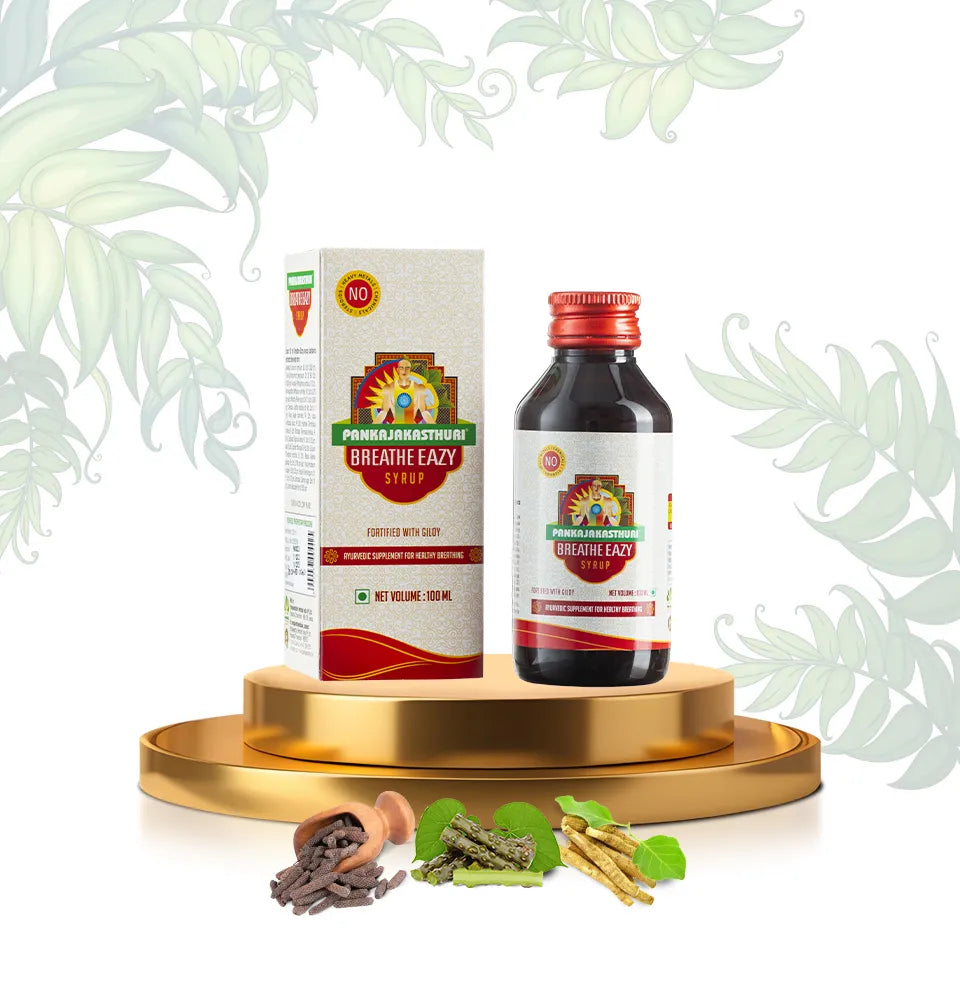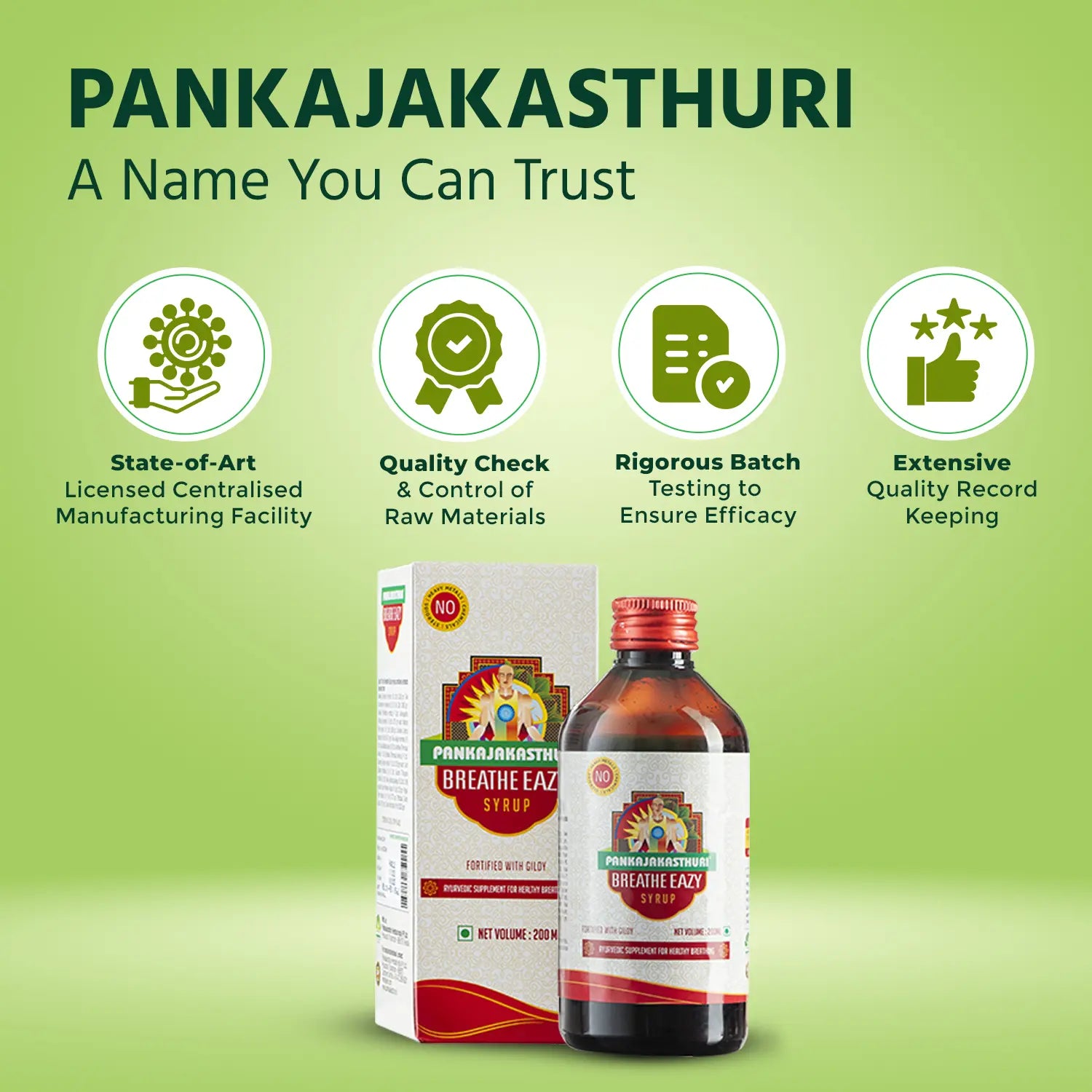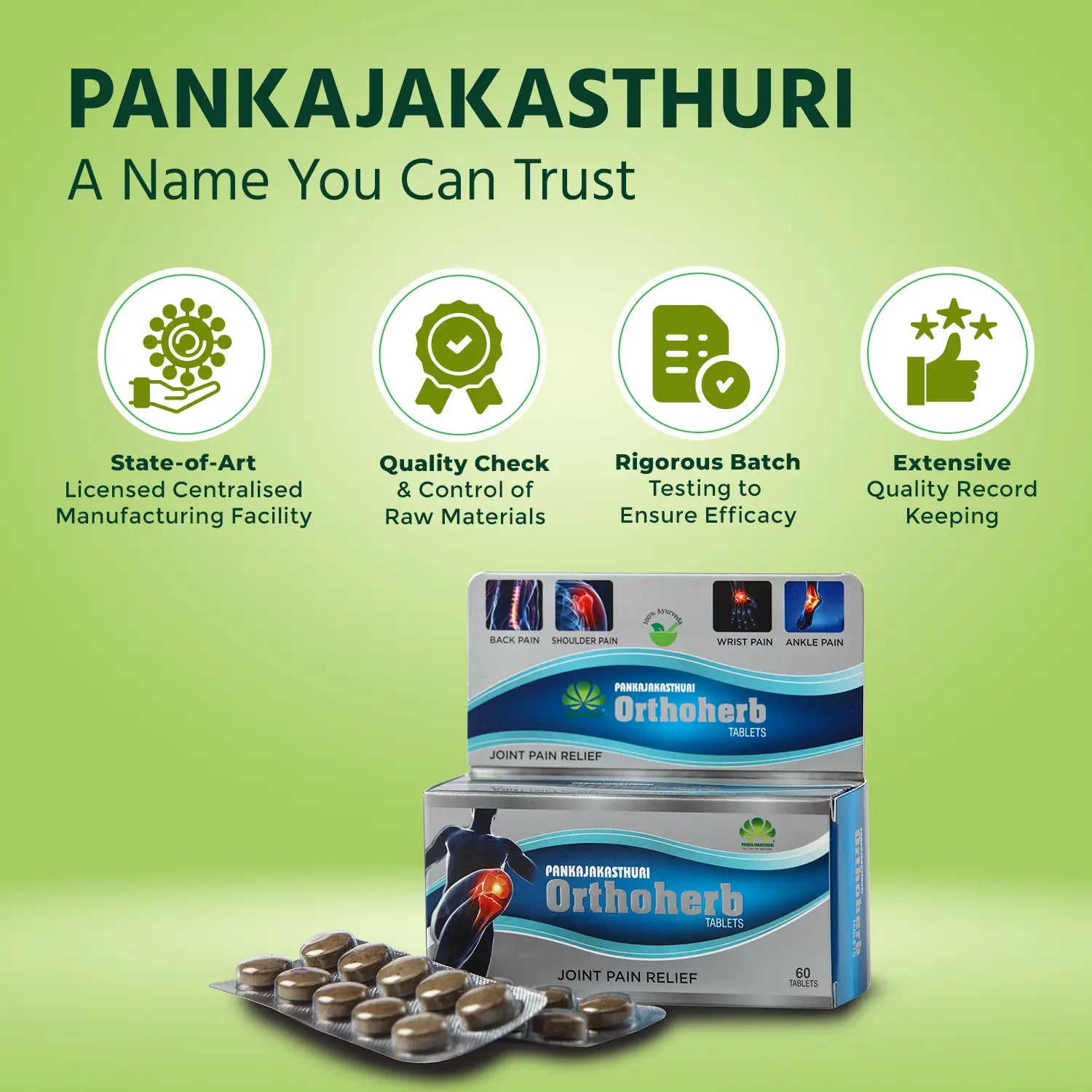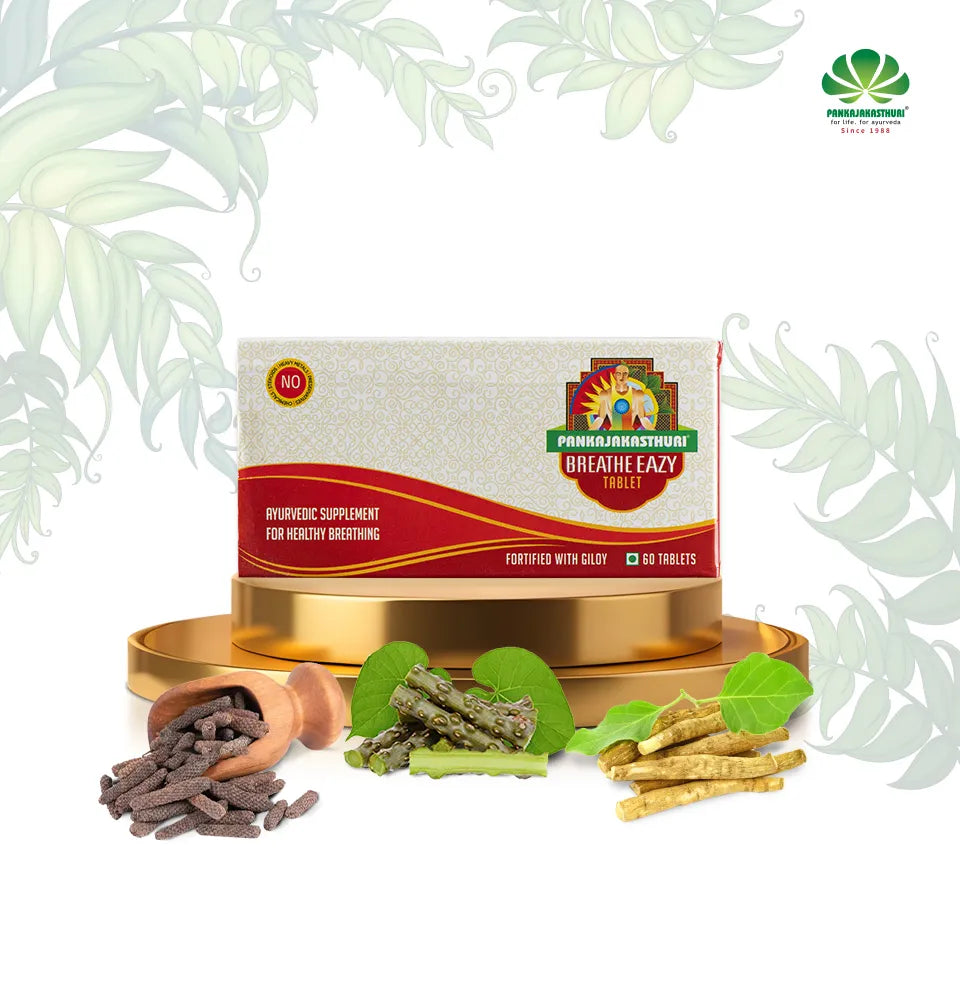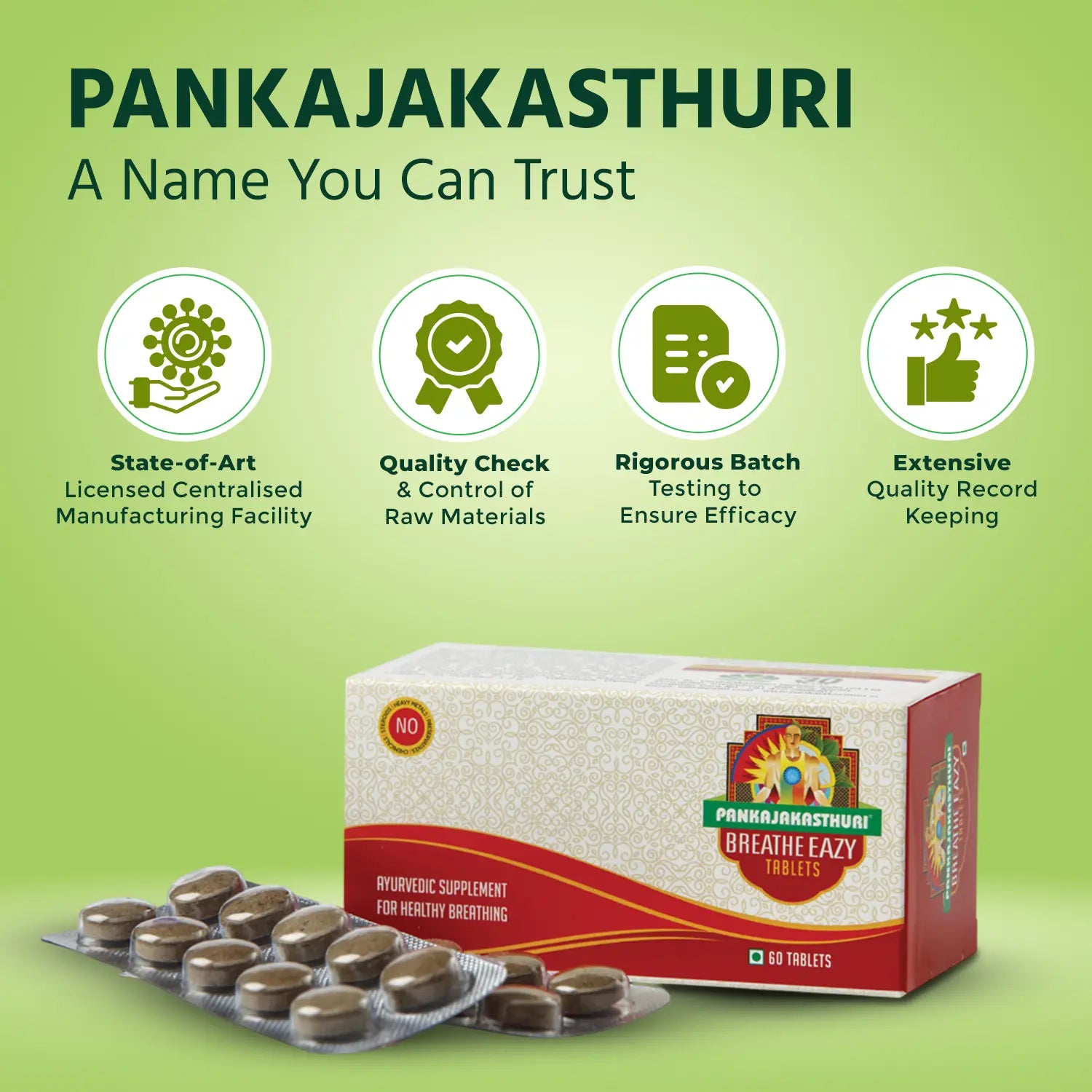
Symptoms And Causes Of Acid Reflux

If you are experiencing a burning feeling in your chest which is accompanied by a bitter taste in your mouth, then it may be acid reflux. It happens when the acid produced by the stomach travels up into the oesophagus.
Symptoms of acid reflux
Apart from discomfort in your chest, other symptoms of acid reflux include:
- Dysphagia - a feeling of food being stuck at the back of your mouth/in your throat
- Sore throat that persists for a long time
- Weight loss
- Persistent hiccups
- Burping
- Bloating
- Difficulty in swallowing food
Causes of acid reflux:
Acid reflux is a digestive problem where stomach acid rises up into the oesophagus because lower esophageal sphincter (LES), which ensures the one-way flow of food, fails to close properly. This allows stomach content to irritate the food pipeline.
Get relief from acid reflux symptoms the natural way
Our ayurvedic medicine for acidity, heartburn, and indigestion, Pankajakasthuri Anticid, provides long-lasting relief from acid reflux symptoms. The syrup doesn’t cause any side effects as it is prepared from natural ingredients. We recommend taking the syrup 3 to 4 times daily after food to relieve your acid reflux symptoms. Learn more about Pankajakasthuri Anticid syrup here.
Tips to naturally relieve acid reflux symptoms
Apart from taking our ayurvedic Anticid syrup, you can take these other steps to get relief from acid reflux symptoms:
-
Avoid eating large meals before bedtime
One of the common causes of nighttime acid reflux is eating a heavy meal right before going to bed. A heavy meal means your stomach has to produce more digestive acids than usual. And when you sleep after eating a large meal, the acid may leak through the LES and cause acid reflux symptoms. -
Avoid food triggers
For many people, certain food items can trigger acid reflux symptoms such as chest discomfort and difficulty swallowing. These food items include citrus fruits, fatty foods, garlic, onion, tomatoes, and spicy foods. If you experience acid reflux symptoms after eating a certain food, take note of it. Gradually, you can prepare a list of food items that trigger discomfort and avoid them. -
Sleep with your head elevated
When you’re lying flat, stomach contents, including the digestive acids, pool in one place and do not travel through your digestive system. To make sure that your stomach contents do not move towards your oesophagus, raise the head section of your bed. You can use extra pillows or a mattress lifer to create a slanting sleeping position. -
Avoid certain beverages
If beverages such as carbonated drinks, coffee, and acidic juices cause acid reflux, then replace them with non-acidic alternatives such as coconut water, carrot juice, and herbal tea. -
Eat smaller meals frequently
More food quantity in the stomach means more digestive acid production and increased risk of the digestive acids travelling up into the oesophagus. If you experience acid reflux symptoms after eating large meals, go for smaller and frequent meals. Plan 4 to 5 smaller portions of meals every day to avoid putting pressure on your digestive system and keep acid reflux risk at bay.



